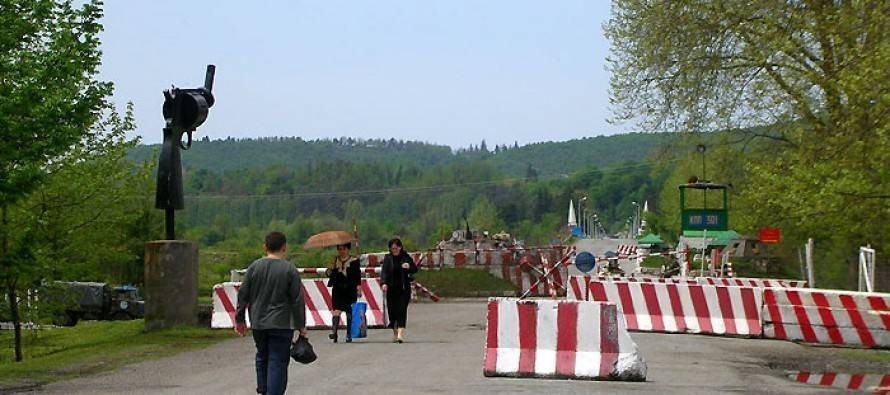საერთო ცხელი ხაზი +995 577 07 05 63


Photo: everydaygeorgia.ge
The Social Justice Center (formerly EMC) responds to the tragic death of four Georgian citizens in the Enguri River and calls on the authorities to take effective political and diplomatic measures to address freedom of movement problems in the conflict regions. The incident is a heartbreaking and tragic experience of infringing human life and fundamental rights, which, on the one hand, reveals the heaviest consequences of the occupation, and on the other hand, the weakness of conflict transformation policies.
On April 7, the media reported that four Georgian citizens had disappeared from Gali, whose bodies were found in the Enguri River in the village Shamgona, Zugdidi Municipality. As it is known, Georgian citizens tried to move to the territory controlled by Georgia to receive pension and buy products. However, due to the closure of so-called border and also the quarantine restrictions imposed by the Georgian authorities, they tried to sneak into the territory controlled by Georgia, which turned out to be fatal for their lives.
Several cases have already resulted in a similar tragedy when people living in the occupied territories tried to cross the controlled territory by swimming across the Enguri River. A 63-year-old woman from Abkhazia who crossed the border to receive medical assistance died a few weeks ago due to quarantine restrictions. She urgently needed medical help, but due to restrictions imposed by the central government, she was sent to the mandatory 5-day quarantine, resulting in the woman's death the next day.
Interestingly, the media agency Apsnipress published the statistics of "illegal migration" from Abkhazia to Georgia on April 2, according to which in the first three months of 2021, the occupant authorities of Abkhazia detained up to 3,000 residents of Gali district for trying to "illegally" cross the de facto border. The Georgian government has not released any official public information on the matter.
Even after so many years, a regime of free, safe, and sustainable movement with the conflict regions has failed. Although this process is hampered primarily by Russia's annexation policy, the Georgian government's policy towards conflict transformation is clearly weak. Although the free movement is in the common interests of communities on both sides of the dividing line, including Georgians and Abkhazians, tangible changes in this direction have failed. Periodically, the so-called border is completely closed or movement is allowed only for certain categories of people. .
In recent months, movement across the ABL has been further complicated by the quarantine restrictions imposed by the Georgian government due to pandemic conditions, which forces people to enter Zugdidi by detours. The 5-day quarantine breaks the families and takes the form of an unjustified social burden that needs to be reconsidered. We understand that there is a high risk of spreading the virus and an interest in protecting life and health, although it is essential that the government take less restrictive measures to achieve this objective, such as introducing a testing system at the de facto border to control the spread of the virus.
In addition to receiving health care services, people living in occupied Abkhazia regularly move to the controlled areas to receive pensions and IDP benefits, which are often their only source of livelihood. The health services offered by the Georgian government are critical for people living in the occupied territories, as they are unable to receive quality and timely medical care on the ground. For this reason, the government is obliged to take into account the local context and needs when imposing restrictions on movement.
Despite the occupation and the difficulties associated with it, the government is not exempt from positive obligations to ensure the protection of the fundamental rights of the people living in these regions and access to vital services. In this process, the authorities should take all political, legal, diplomatic, administrative, and other measures for rights protection in such regions. To this end, it is important to work with the de facto governments of the conflict regions to create mutually acceptable and shared conditions on freedom of movement. We emphasize once again that Abkhazian and Ossetian communities are interested in receiving services and other social benefits in Georgia. In this regard, it is also fundamentally important that the Georgian authorities do not allow any delays that fall within their control.
Due to the current crisis, the Social Justice Center calls on the Georgian authorities to:
The website accessibility instruction